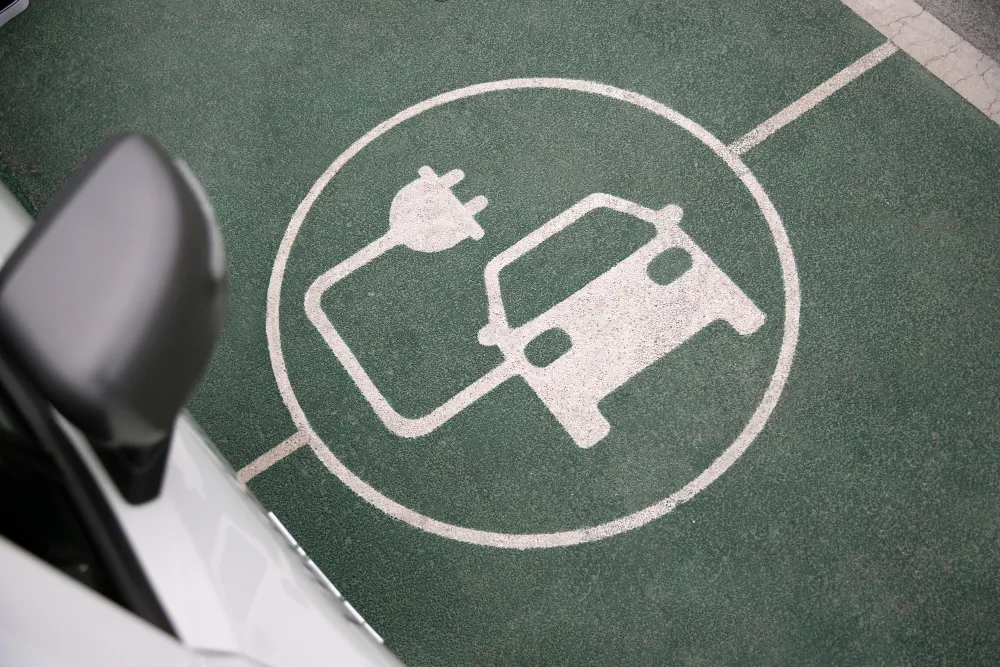Securing a Fantastic Loan for Your New EV
Purchasing an electric vehicle (EV) in the U.S. by 2025 is not only an eco-friendly choice but also a savvy financial decision.
The upfront cost of an EV can be daunting, making it crucial to grasp how auto financing for EVs operates.

With the right choices, you can leave the dealership with a shiny new electric vehicle without jeopardizing your finances.
What’s Fueling the EV Surge?
The increasing appeal of electric vehicles in the U.S. is driven by several important factors:
• Fluctuating gas prices
• Government incentives
• Rising awareness of sustainability
Major manufacturers like Tesla, Ford, Chevrolet, Hyundai, along with newcomers like Rivian and Lucid, are heavily investing in this sector.
EVs have transitioned from being niche items to prominent features in American homes. However, despite gradual price reductions, EVs generally remain pricier than gasoline vehicles.
Navigating EV Financing: First Steps
Like any car loan, the first step involves assessing your credit.
Financial institutions, credit unions, and car manufacturers will review your credit score, monthly income, existing debts, and overall financial background.
If your credit score exceeds 700, you’ll probably secure the top rates.
Even with a score between 640 and 699, you might still negotiate favorable terms—especially if you can provide a down payment and demonstrate stable income.
In contrast to traditional auto loans, many EV loans offer unique incentives.
Some lenders provide lower interest rates, cashback offers, and even bonus incentives to motivate consumers to make the switch to electric.
Special Rate EV Loans
Institutions like Bank of America, Wells Fargo, and Chase provide loan options specifically designed for EVs. However, the real champions in this arena are credit unions.
Credit unions such as Navy Federal, PenFed, and Alliant Credit Union have very attractive terms, with rates beginning as low as 4% annually in certain situations.
Some automakers have in-house financing options to boost their EV sales. For instance, Tesla Financing presents competitive rates for the Model 3 and Model Y, with financing terms extending up to 72 months.
Ford Credit and GM Financial also offer dedicated EV financing options, which are frequently linked to seasonal deals.
Financing Assistance from the Government
You can benefit from a tax credit of up to $7,500 for eligible EVs through the federal government’s Inflation Reduction Act.
Even if you don’t receive the credit right away, it can help reduce your taxes in the following year, lightening your tax load.
Many states have their own incentives, including direct rebates, tax breaks, access to HOV lanes, and complimentary parking in certain cities.
These benefits can be used alongside your car loan, aiding in lowering the total amount you need to borrow—or even covering your down payment.
Should You Lease or Buy?
Leasing is often viewed as a viable alternative to purchasing a vehicle. Given the rapid advancements in EV technology and the high cost of batteries, their depreciation differs from that of traditional vehicles.
Leasing can be a smart choice if you’re planning to change cars every 2 to 3 years and prefer not to deal with issues related to resale or maintenance.
Conversely, purchasing with a loan remains the best choice if your goal is to accumulate equity over time.
Key Points to Consider When Closing Your Loan
Before you put pen to paper, pay attention to these important aspects:
- APR: Includes interest and fees. Lower is better.
- Loan term: Longer terms mean lower payments but higher total costs.
- Down payment: A higher down payment reduces the loan amount. Aim for at least 10%.
- Prepayment penalties: Some loans may charge fees for early payoff. Steer clear of these.
Digital Tools for Loan Calculations
Unsure of what you can spend? Many banks and fintech companies provide EV loan calculators.
Platforms such as NerdWallet, Bankrate, and Credit Karma let you compare various options tailored to your credit history.
Apps like Autopay, TrueCar, and manufacturer websites provide quick online pre-approval, simplifying negotiations at dealerships.



